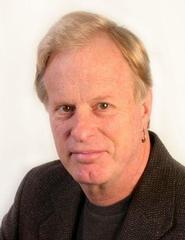
In the words of its founder and curator Visiting Professor of Art History Scott MacDonald, the Forum on Image and Language in Motion (F.I.L.M.) series “is what you would never know about film if you just went to the movies every weekend or watched television.” F.I.L.M. holds events every Sunday afternoon of the semester, sampling a wide palette of films.
It’s good exposure to directors, filmmakers and other artists who aren’t normally in the public eye. For those who think movies fall into the categories of action, suspense, romance or comedy, the F.I.L.M. series proves cinema offers much more than that.
One of the most appealing aspects about the series is the diversity within the program. MacDonald’s careful film selection process attempts to cover a wide range of themes -- from films by female directors to early cinema. He tries to incorporate three categories of movies in his programs, including “classics,” “independent documentaries and “experimental films,” movies that aren’t traditionally shown in theaters.
The Alloy Orchestra, a musical ensemble that provides accompaniment to silent films, started off this semester’s F.I.L.M. series with a performance set to films by Edwin Porter, Winsor McCay and Robert Florey, among others. The trio adds an aspect of diversity, being a primarily music-driven performance. The following Sundays included Verena Paravel with 7 Queens and Foreign Parts, and Andy Warhol’s Screen Tests. Most recently, Matthew Porterfield appeared in person with his independent film, Putty Hill, a feature-length production made on $50,000 that highlights the lives of everyday people in a Baltimore suburb brought together by the death of a young man in the community.
The October 23 F.I.L.M. is a live presentation by Ernie Gehr, featuring a program titled “Which Way Is Up!?” and the film Waterfront Follies. MacDonald noted that Gehr is a magician on screen; playing with the idea that up and down are relative and questioning a fundamental assumption of every movie -- that gravity is “down.”
MacDonald calls himself a “creature of his generation.” He recalls being intensely interested in film study in the 1960s, along with many of his peers. MacDonald, who received his degree in American literature, draws several parallels between literature and film, just as authors broke open possibilities of writing, so did directors in filmmaking. When he wrote his Ph.D. thesis on Hemingway, MacDonald thought to himself, “Who am I serving?” By this he meant that people already knew about Hemingway, but by presenting films by filmmakers that were little-known, attention could be drawn to their work, which the F.I.L.M. series epitomizes.
MacDonald is especially grateful that Hamilton encourages and puts resources into the F.I.L.M. series. He notes other colleges may not be willing to invest the time and resources into a program such as this. MacDonald also noted that over the years, the community outside of Hamilton has been showing increased attendance at F.I.L.M. screenings.
When asked what his favorite film was, MacDonald shakes his head and replies, “Too many.” It seems he is brimming with many brand new ideas for the series in any given semester. MacDonald doesn’t try to pick bizarre pieces for the sake of being bizarre, but rather he wants to focus on the unconventional; what most people are likely to not have seen before. To prove his point, he once brought in Pakistani journalist Sharmeen Obaid-Chinoy, who provided a glimpse into an area that receives limited exposure, films under the Taliban government.
MacDonald maintains that film is an ever-changing art form that can be used to search inside ourselves, or learn more about the world. He calls most mainstream film “propaganda for the status quo,” that such films make us feel good about our beliefs. What his F.I.L.M series attempts to do is broaden our horizons while also being enjoyable.
